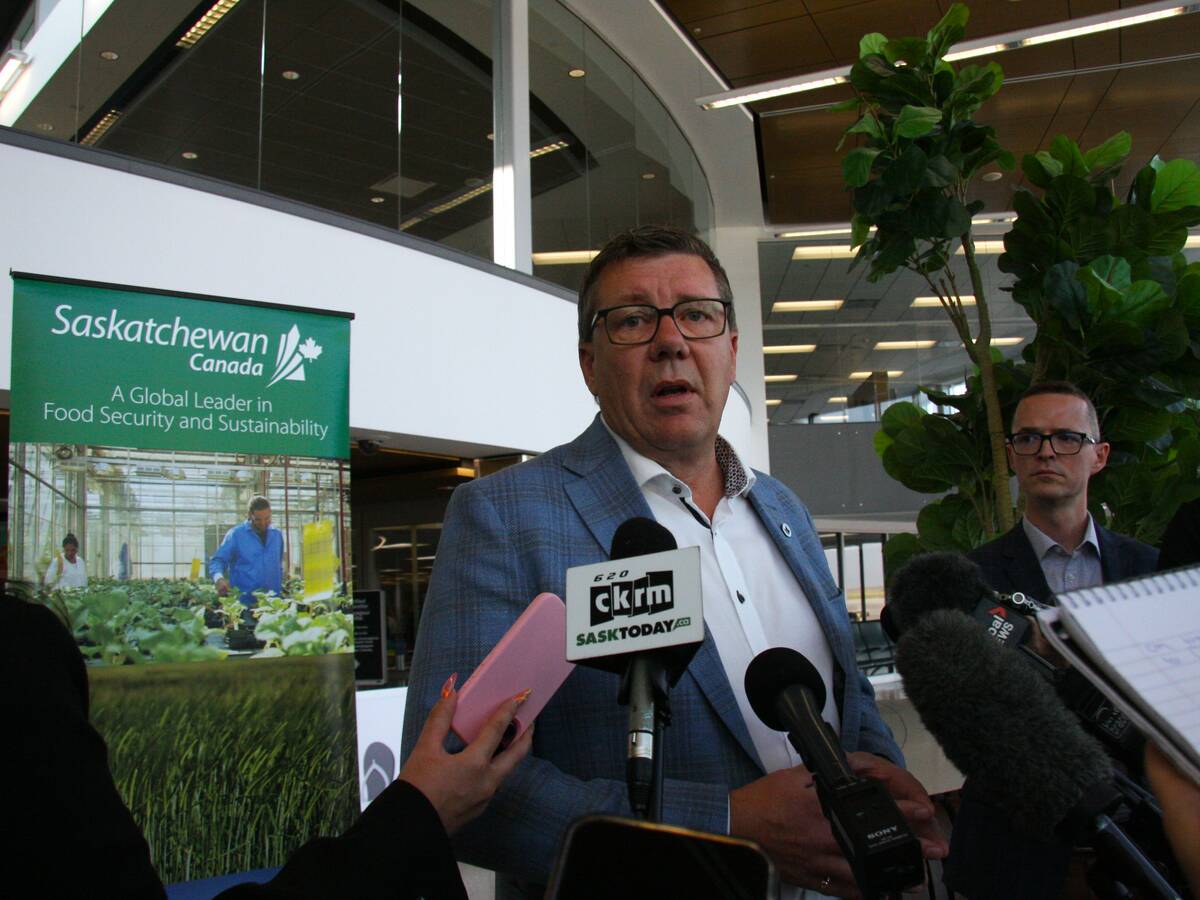The spread of avian influenza in Europe last week had quick repercussions in Canada as eight Quebec farms that imported turkey chicks from France were placed under quarantine by the Canadian Food Inspection Agency.
The influenza was confirmed on a French turkey farm last week and Canada joined other countries in immediately stopping imports of live birds and bird products from France.
It was discovered that some chicks had been imported into Quebec from a French company and the 30-day quarantine was automatic. The birds were not from the region in France where the influenza was discovered.
Read Also

Moe says China trip laid ground work
Saskatchewan premier says signals of moving forward on canola tariffs can be seen in moves from Chinese and Canadian governments
“That has been standard practice for decades. As an extra precaution, the CFIA is monitoring the health status of these birds on a daily basis and they are being tested,” agriculture minister Chuck Strahl said March 2.
“Preliminary tests have come back negative. Of course, it’s what we expected.”
Strahl told the annual meeting of the Canadian Federation of Agriculture, and later confirmed to reporters that it is routine and no indication of risk.
“We’re confident that the science-based method that we have of dealing with a situation like this has been followed accurately and of course, Canadian food is completely safe.”
Strahl told reporters that Canada has learned from its own influenza outbreak several years ago that touched his Fraser Valley riding in British
Columbia.
“Obviously we are extremely diligent not just to apply standards worldwide, but to apply the highest standards we can to make sure the disease stays out of Canada,” he said.
“We’ve learned something from the past on how to control it if it ever did come to Canada so I’m very satisfied that CFIA has the people and the plan in place to make sure Canadian food products are very safe. As we know, in North America there is no (avian influenza) problem and we want to keep it that way.”
Meanwhile, the United Nations Food and Agriculture Organization warned last week that the steady spread of the influenza virus from Asia to the Middle East, Africa and Europe will have severe impacts on chicken producers around the world.
“Consumption shocks are progressively lowering global import demand for broiler parts,” said the Rome-based UN agency in a Feb. 28 report.
The FAO said prices for American broiler exporters dropped 13 percent during the last two months of 2005. Brazil, the United States and the European Union will be the hardest hit because they are the largest exporters.
In Italy, poultry product consumption dropped 70 percent in February and it was down 20 percent in France. Worldwide, the FAO said 200 million chickens have been culled or died since 2003 because of avian influenza.
In Canada, the major concern is keeping the infection out of the country and reassuring consumers the Canadian flock is influenza-free.














